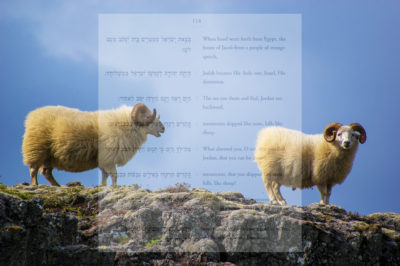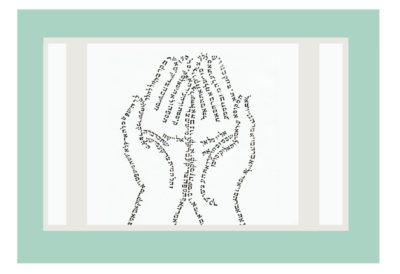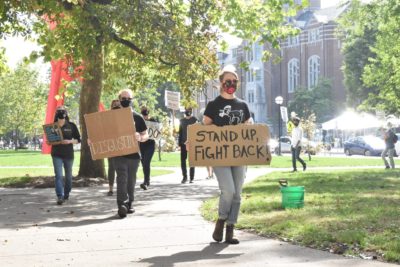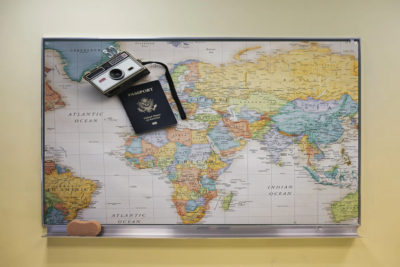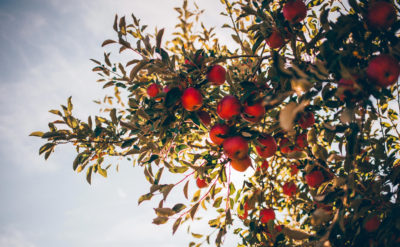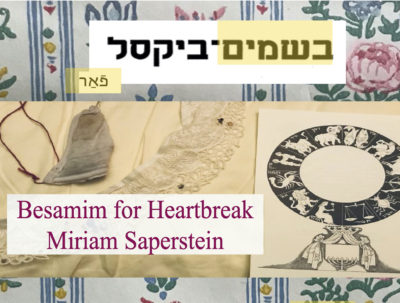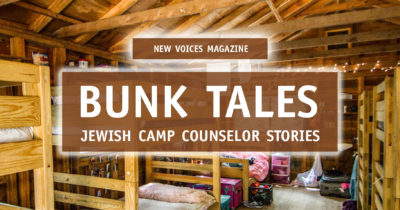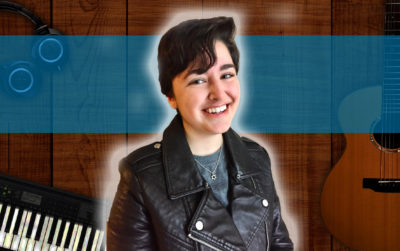Archive
“The mountains, on the other hand, they weren’t afraid. They got up and did a little dance, like muscular rams hopping from rock to rock.”
In this excerpt from a collaborative High Holidays reader entitled “Our Still Small Voice”, Raffi Levi brings Jewish spiritual wisdom on enoughness and healing for readers looking to set an intention for the whirlwind Days of Awe.
Part one of an ongoing correspondence with New Voices Magazine, Daniel Crasnow reports on his experiences as an English teacher in Israel during a year of pandemic in a new series entitled, “Diaspora English”.
Listen to a new two-part High Holidays podcast “Here We Are,” fresh out of Providence, Rhode Island. In a time of unprecedented turmoil, this group of Jewish students has gathered stories and reflections on how they’re entering the new year in the face of a pandemic, climate change, political upheaval, and personal struggle.
In July 2020, Rena Yehuda Newman became the second transgender Editor of New Voices magazine. As Rosh Hashana approaches and the year changes, Rena Yehuda sits down with their predecessor Daniel Holtzman to reflect on writing, yearning, revelation, and transitioning on the job.
What happens when two people in an interwoven community break up? A confessional glimpse into ritual and relationships, “Besamim for Heartbreak” braids together archival research, poetry, ritual practice, collage, embroidery, illustration and personal narrative, in a new zine centered around Besamim, the Jewish practice of smelling spices.
“I had finally learned how to be my own version of a madricha and not constantly try to copy or one-up others. I wasn’t looking for heroic moments anymore. I was simply loving my job and loving my chanichimot.”
In a day and age of DIY Judaism and Jewish innovation, Syd’s Queer Jewish music is modern revelation: a Jewish practice that draws from tradition and is refreshed with new melodies and media. New Voices has a conversation with Syd to talk about composition, spirituality, queer identity, and creativity in a time of quarantine.
“Jewish kids wait ten months just for two, and those two never came.” A reflection on the absence of summer camp in the time of COVID-19.
